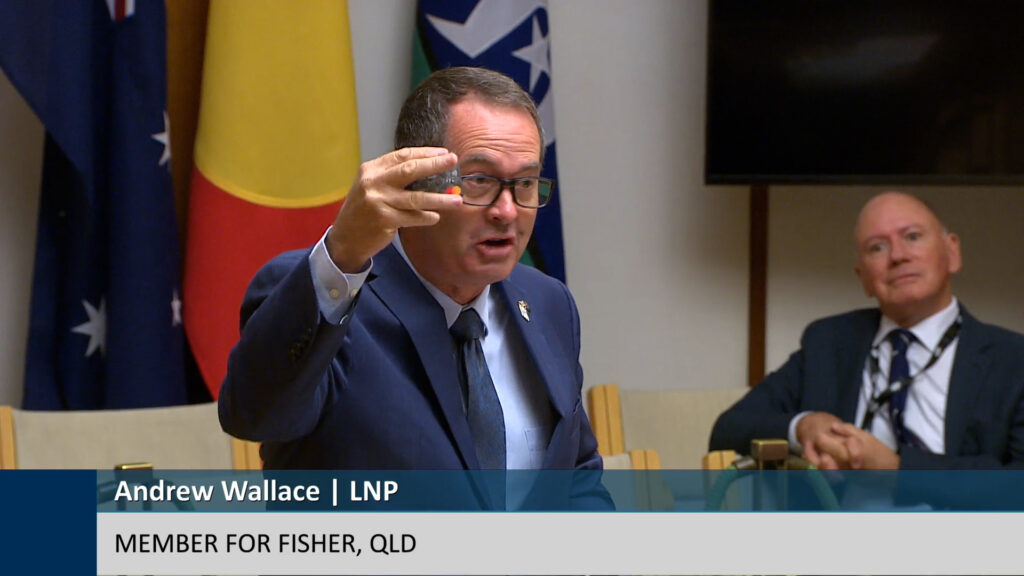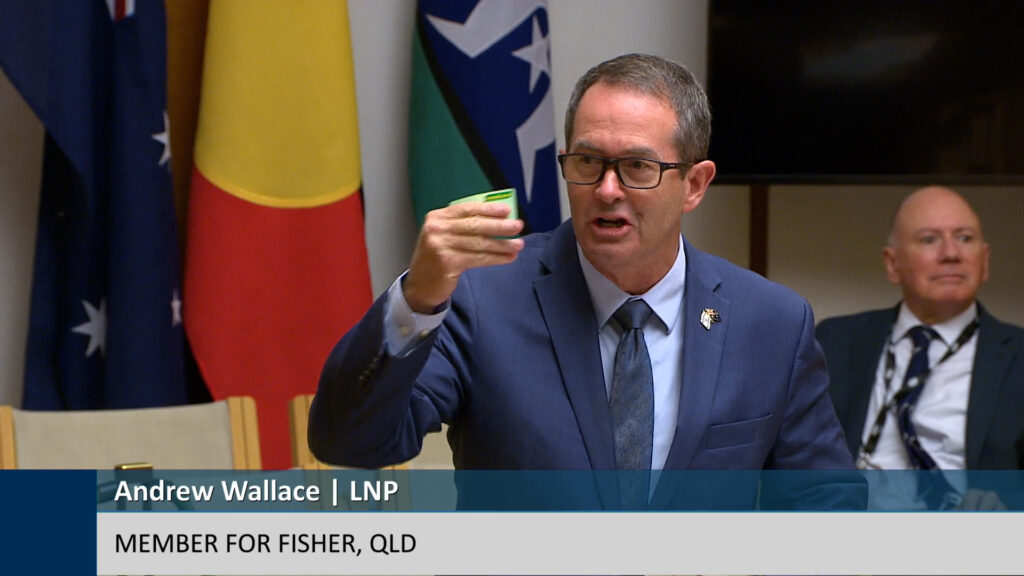House of Representatives
Date: 28 July 2025
Speaker:
I call the Member for Fisher.
Andrew Wallace MP:
Thanks, Madam Deputy Speaker. I want to thank the Member for Lalor for giving me the opportunity to speak on Labor’s failings when it comes to Medicare.
It’s important we separate reality from rhetoric. Everyone remembers the Prime Minister during the campaign holding up his Medicare card and saying, “All you’ll need is one of these.” But what he didn’t tell you is you’ll also need one of these. Your credit card, because for Australians trying to see a doctor, a Medicare card simply isn’t enough.
Let’s look at the facts. Under Labor, GP bulk billing has plummeted from 88% to just 77%, an 11-point drop. In the past year alone, there were 40 million fewer bulk billed GP visits. Patients are now paying 45% more out-of-pocket just to see a doctor, that’s if they can even get in to see one.
On the Sunshine Coast, my own GP. Hello Dr Andrew, is booked out weeks in advance. He’s a great doctor, but like so many Australians, I have to book well ahead. And for many, they’re facing long waits and high out-of-pocket costs, swiping both their Medicare card and their credit card.
The situation is dire. More than 1.5 million Australians avoided seeing their GP last year because they simply couldn’t afford it.
According to the RACGP, Labor’s push for urgent care clinics is only making the GP shortage worse. The government’s own survey data backs this up.
When we were in government, Medicare funding increased every year. In 2012–13, Medicare spending was $18.6 billion. By 2021–22, that figure had risen to $30 billion. Yet Labor, when in opposition, claimed we were cutting Medicare. How can an increase from $18.6 to $30 billion in under a decade be called a cut? That’s Labor’s economic logic.
In our final year, 167.2 million free GP services were delivered, 61 million more than Labor’s last year in office.
And Labor’s record on mental health? Just as grim.
One of the first things they did in 2022 was cut Medicare-funded mental health sessions in half, from 20 down to 10, impacting 372,000 vulnerable Australians. They ignored the expert advice of the very panel the Health Minister commissioned, who told them to keep all 20 sessions.
As a result, access to Medicare-supported mental health care is now at a 10-year low. Labor even abolished the National Mental Health Commission. And the Chair of Mental Health Australia resigned in protest after the Prime Minister repeatedly refused to meet with him.
Labor’s record on healthcare is clear: big on promises, poor on performance. They’ll promise you the world and hand you an atlas.
The Coalition will continue to fight for a healthcare system where your ability to see a doctor doesn’t depend on your bank balance.


